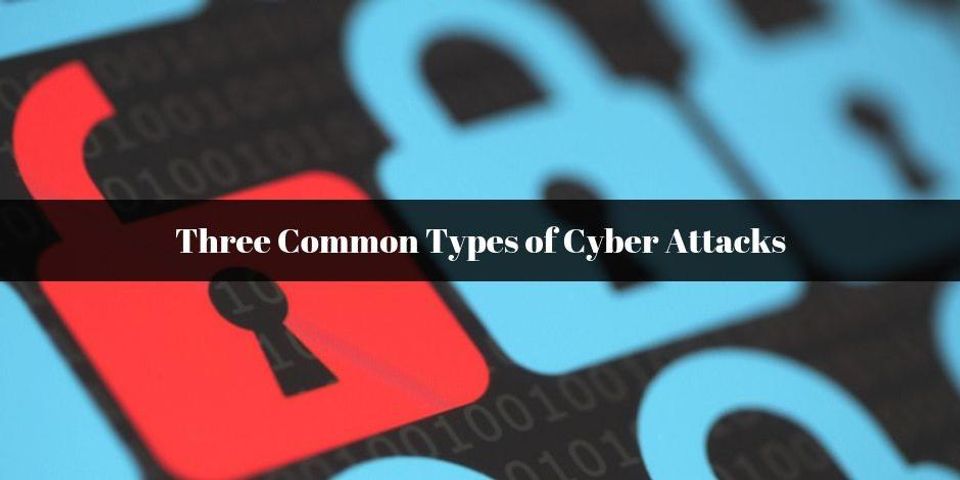Three Common Types of Cyber Attacks

If you are an owner of a small business, it is important to include cybersecurity as part of your business toolkit. The evolving world of cybercrime can be complicated, and at the end of the day, you just want what’s best for your business. While you don’t need to be a cybersecurity expert, that’s what we are here for, it’s beneficial to understand the ways cybercriminals seek to threaten your business's livelihood. In our previous article, Why Do Hackers Target Small Businesses, we discussed how almost half of cyber attacks target small businesses. Now that you know why hackers target small businesses, it is important to understand the most common types of cyber attacks SMB’s need to watch out for.
Three Common Types of Cyber Attacks
Malware
Malware is a term used to describe malicious software, including spyware, ransomware, viruses, and worms. Malware breaches a network through a vulnerability, typically when a user clicks on a dangerous link or email attachment that installs risky software. Once inside the system, malware can do the following:
- Blocks access to key components of the network (ransomware)
- Installs malware or additional harmful software
- Secretly obtains information by transmitting data from hard drive (spyware)
- Disrupts certain components and renders the system inoperable
Phishing
Often posing as a request for data from a trusted third party, phishing attacks are sent via email and ask users to click on a link and enter their personal information. Phishing emails have gotten much more sophisticated in recent years, making it difficult for some people to be able to differentiate legitimate requests for information from false ones.
Denial-of-service-attack
This type of attack floods systems, servers, or networks with traffic to exhaust resources and bandwidth. As a result, the system is unable to fulfill legitimate requests. Attackers can also use multiple compromised devices to launch this attack.
This is just a selection of common attack types small business owners need to watch out for. Being aware of these types of attacks will significantly improve your SMB’s security posture. Next week, we will wrap up our three-post series with a discussion on how SMB’s can protect themselves from cyber attacks.
About the Business
Have a question? Ask the experts!
Send your question

